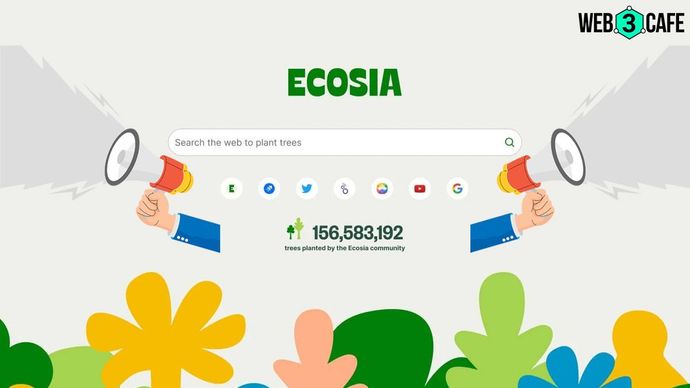Ecosia, the 'Green' search engine, navigates challenges & potential in the changing landscape of AI-powered search engines
Generative AI is shaking up the search engine game, forcing eco-friendly search engine Ecosia to make strategic shifts. Challenges and possibilities abound

Highlights
- Ecosia is navigating a transforming search landscape driven by generative AI
- The company may dive into users' transactions, potentially guiding them toward eco-conscious choices, such as greener travel options
- The shift to generative AI raises legal and environmental concerns
In the ever-evolving world of search engines, the small yet environmentally conscious Berlin-based company, Ecosia, finds itself at a crossroads. For over a decade, Ecosia has distinguished itself by pledging to be carbon-negative, reinvesting all its profits in planting trees, with a remarkable count of more than 180 million since its 2009 launch.
While it may not dethrone giants like Google, Ecosia has carved out a niche with around 20 million users, thanks to its green branding and a search results repackage from Microsoft's Bing. But now, everything has been thrown into chaos, courtesy of generative AI, and the company is adapting.
Facing the search engine revolution
Ecosia has begun the transition from exclusively using Microsoft's Bing for its search results, a partnership that has lasted 14 years, to predominantly sourcing them from Google. The shift was triggered by Microsoft's price hikes on search results, and Ecosia had to act swiftly to stay competitive in this dynamic market. Microsoft has remained tight-lipped about the change.
Ecosia's foray into a partnership with Google is experimental at this point, with no immediate plans to utilise Google's AI tools. However, it remains an option for the future.
New revenue avenues
Generative AI has ushered in a transformation in how users interact with search engines. In the past, users would receive a list of links in response to their queries. Now, AI-powered search engines aim to answer the question directly, and users often transact directly within the search results. Ecosia hopes to capture this trend and potentially increase its revenue by taking a cut of user transactions. This approach could also offer an opportunity to steer users toward more environmentally responsible choices.
Despite the opportunities that AI-powered search offers, it presents new challenges. Legal questions arise as AI-generated answers are different from traditional search results, raising questions about liability. While the US currently protects search engines under Section 230, the same may not apply to answers from AI-driven search engines. Europe is also preparing new AI regulations that will impact content presentation and labeling.
Moreover, the environmental aspect is a major concern. AI-enhanced search results demand significantly more computing power, translating into increased energy consumption and potential carbon emissions. This shift comes at odds with Ecosia's eco-conscious approach, requiring the company to address the issue and strike a balance between technology and environmental responsibility. The entire tech industry must grapple with this energy consumption surge and its implications for carbon emissions.
As the search engine landscape undergoes rapid transformation, Ecosia faces the challenges and opportunities presented by the rise of generative AI. The company's mission to combat climate change, one search at a time, remains steadfast, but adapting to a new era of search engines driven by AI brings both complexity and potential.
